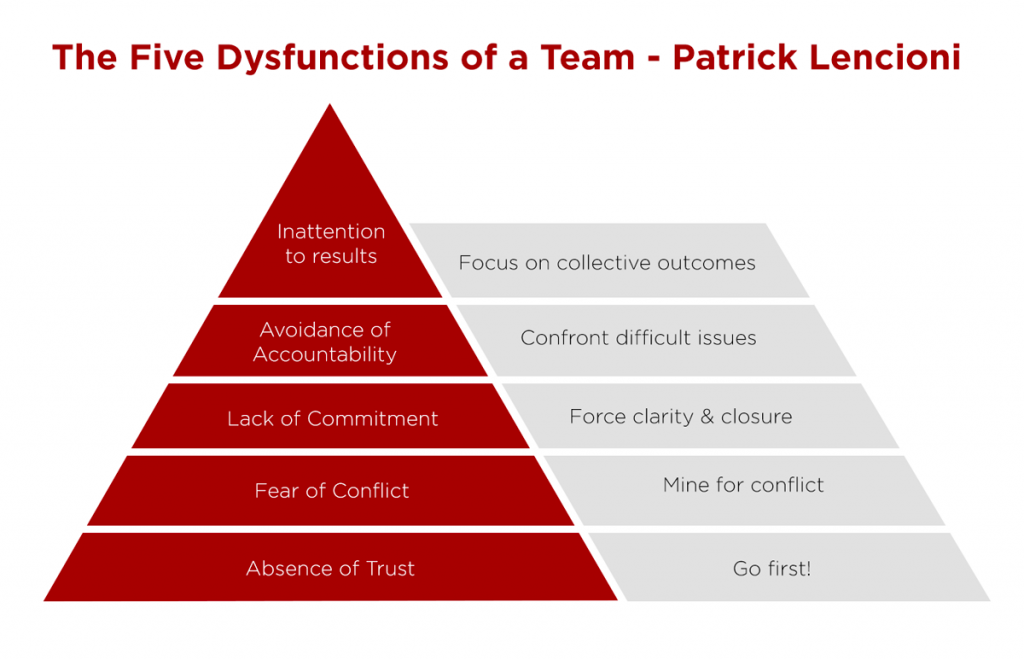
From a sight perspective 2020 vision is about visual acuity. Visual acuity is determined by the sharpness, clearness and focus of a person’s vision.
So maybe for businesses 2020 is the year of acuity - about the sharpness and focus of your organisation's vision?
One of the basic building blocks of any business is to be able to articulate your vision. It’s your sense of future state, what you hope to become. It sets the scene in determining and communicating the purpose of your business to your team.
This then provides the motivation and inspiration for your team to achieve that purpose.
Vision statements give direction for employee behaviour and help provide inspiration. A vision statement is a view into the future with hope and a positive outlook. It describes a company's inspirational, long-term plan for what they'll be able to accomplish, who they will help, and how the company will then be perceived. It's often out of reach for now, but not so far out of reach as to be unattainable. The vision statement gives everyone a description of what they're working towards, they will often be aspirational.
If your business vision is then combined with strong company values that your team are aligned behind then you have the beginnings of a really good culture. Vision and values together create alignment and purpose, and everyone needs a sense of purpose (proven by many scientific studies).
Maybe your aim for 2020 is to review or create a vision along with some values that inspire, motivate, and drive the right day-to-day behaviours in your team. This will not only drive engagement but also assist in talent retention.
Are your team living the values of your organisation? Do they align with your 2020 vision?
What’s your 2020 vision for your organisation looking like? Is it time to refresh, re-plot?
Written by Julie Baxendine, General Manager
A high performance team is your organisation's ultimate secret weapon. Imagine if you could get all the people in your organisation rowing in the same direction - you could dominate any industry, in any market, against any competition, at any time!
Patrick Lencioni is a well-known business management author, who has coached thousands of management teams and CEOs. His 'Five Dysfunctions of a Team' framework is very relevant for understanding how to build a high-performing team. By looking at what makes a dysfunctional team, we can understand how each behaviour leverages off the next and that by doing the opposite, we can build a world-dominating team.
The fear of being vulnerable with team members prevents the building of trust within the team. Vulnerability-based trust is characterised by such things as saying ‘I need help,’ ‘I screwed up' or 'I made an error.’
Solution: Build trust into your team culture by creating an environment of being open and honest, sharing problems, admitting mistakes and assisting each other in a collaborative manner.
The desire to preserve artificial harmony stifles productive, ideological conflict. This creates two problems. Firstly, stifling conflict actually increases the likelihood of destructive, back channel sniping. Secondly, it leads to sub-optimal decision-making because the team is not benefitting from the true ideas and perspectives of its members.
Solution: Welcome productive conflict in your team. Challenge paradigms, encourage others to speak up or out, get input from the team and confront issues quickly. But remember, productive and constructive conflict cannot happen without trust!
The lack of clarity or buy-in prevents team members from making decisions they will stick to. People give up or check out because either artificial harmony on one extreme, or destructive harmony at the other extreme leads to an environment of either fear or fantasy.
Solution: With trust and healthy conflict built into your team culture, engage your team by ensuring you are aligned on common objectives and being clear on direction and priorities.
The need to avoid interpersonal discomfort prevents team members from holding one another accountable for their behaviours and performance. It’s too hard and emotionally draining to be constructively direct with a peer.
Solution: By now, you should have trust, productive conflict and commitment in your team. Accountability is the natural next step. Implementing the same standard for everyone and having clarity over these standards is essential. Team members should be made to feel comfortable to take accountability and to hold each other accountable, even if it is difficult. Likewise, a high performing team also recognises each others' performance with praise or rewards.
The pursuit of individual goals and personal status erodes the focus on collective success. By not focussing on results, you're more likely to see poor performance and higher team turnover.
Solution: With a team now built on trust, healthy conflict, commitment and accountability, the final tip of the pyramid is focussing on results. Results-focussed teams are more highly motivated. Of course, there are a multitude of benefits to having a highly motivated team - one being that you'll be likely to see reduced staff turnover.

So now, if we step back and look at the flip side of each of these five dysfunctions, we can see the characteristics of a High Performance Team:
If you're a leader of a team, commit to addressing the five dysfunctions and see what an enduring difference it makes to your team's culture, performance and motivation.
For more information, ask us about how we can help improve or boost your team culture.

This post was originally written to advise employers around supporting their employees during the devastating Nelson fires in February 2019, but remains relevant for many disaster and crisis scenarios.
The impact of environmental disasters and traumatic events tends to result in feelings of insecurity and collective vulnerability. Some of your employees may experience a range of reactions to an unsettling event like this, including anxiety and worry about the consequences and aftermath of the disaster.
In the case of the Nelson fires, many will be concerned about the damages or potential damage to their homes and/or property, and the impact on their families. Some people may become distracted, anxious, and less productive in their day-to-day functioning. These feelings are all perfectly normal and understandable.
Employers will find some employees are more affected than others. Employees’ reactions also depend on their current life stressors and their association with previous natural disasters or traumatic events. It is natural that during this time, and for some ensuing period, collective productivity of your staff may diminish. At the same time, a crisis tends to bring people together.
Employees are resilient; however some will exhibit more reactions and may need additional support in order to cope.
Typically, some people experiencing stress do not openly communicate their anxieties. Often, the only observable signs may be behaviours such as:
Disasters are strongly related to a loss of control and influence over what is happening. Therefore, a primary consideration for employers is to provide a supportive environment in which control, confidence and competence can be regained. It is helpful to:
If you are unsure about your ability to provide employees with work due to evacuations, quarantine/isolation, fire risk and/or health and safety concerns, or if your employee/s may not be able to work due to these events - we suggest you:
If you're unsure, seek advice - you can contact our team here.
_______________
Follow Intepeople on Facebook & LinkedIn for our latest news and advice.

If your business is a shop and you plan to be open on Easter Sunday, you need to be aware of the amendments to the Shop Trading Hours Act 1990, that were introduced in 2017. If you require staff to work on Easter Sunday, you are required to notify employees in writing (or via email). This must be at least four weeks in advance of Easter Sunday, but no more than eight weeks.
On receiving the notice, employees have up to 14 days to notify you if they refuse to work that day. The employee has the right to choose not to work. They do not need to provide a reason for their choice.
If an employee is treated unfairly for choosing not to work on Easter Sunday, they have the right to bring a personal grievance.
Easter Sunday is not a public holiday, therefore employees are paid their usual rate. There is no entitlement to time and a half and a day in lieu.
For more information about this or to discuss your individual situation with one of our HR Partners, we invite you to contact us.
Intepeople HR Partners Melisa Kappely and Marianne Wilkinson completed an intensive training programme in the USA with the Association of Workplace Investigators (AWI) late last year.
With this achievement they join a small number of New Zealand HR Professionals and Lawyers as AWI Certificate Holders.
At the Austin Training Institute in Texas, Marianne and Melisa each passed three individual assessments, demonstrating their specialised knowledge and skills to successfully perform impartial workplace investigations. The four-day training covered 12 modules, with education sessions ranging from strategies to avoid bias, establishing rapport with witnesses, effective interview techniques and mock investigation sessions where their skills were evaluated by recognised experts in the field.

With reported cases of workplace issues including bullying and sexual harassment rising, there is increasing demand for trained workplace investigators. Choosing an external agency to complete a workplace investigation ensures an impartial, unbiased and fair investigative process.
Marianne and Melisa’s advanced achievements establish them amongst the leading workplace investigators in New Zealand. We are very proud of their achievement!
Contact us for more information about Intepeople’s approach to workplace investigations.
Did any of you notice this interesting article in the Business pages of Stuff last week?
Employees rating Employers Article
It essentially outlines how there are now websites like Trip Advisor that you can go to and rate your workplace – usually out of 5.
The site the articles uses as an example is www.glassdoor.com.
As a seasoned HR professional I had to go and check it out and see how it could affect the EVP (Employer Value Proposition) of a company – i.e. the impact this could have on how attractive are you to work for.
Glassdoor calls itself a career community website that features areas such as: Jobs, Salaries, Interview Questions, a place to rate employers and quite a large employers section where employers can place job ads and get free advice on some career type issues.
Be aware that there are already a number of New Zealand based companies on there – usually bigger one e.g. Banks, Insurance. Interestingly as part of your login you are asked to rate where you currently work so it won’t be long till there are a number of NZ employers on there. Glass door has over 30 million users…
So what does this mean for Employers today? I see pros and cons

Pros:
• If you have a really great place to work you will get free advertising and endorsements
• Negative feedback is always a chance to take a step back and ask yourself some hard questions about how it really is working at your place
• You get free feedback on areas you may need to improve on
• It’s a relatively controlled environment where there is not a lot of space for employees to rant about really bad experiences
• It will encourage employers to ensure their recruitment processes are robust and transparent that they provide a high standard of customer service to their candidates
Cons:
• The feedback you may receive is out of your control and there is no opportunity to respond to this
• Employers will really have to live up to their promises
• You may struggle to attract the kind of staff you really want
• You have to rely on perceptions from people who may be very one sided in their views
I do believe this type of rating system is a bit of a wakeup call for Employers. They need to be aware and ready to deal with the impact of these websites on their employment brand.
The changing face of available workforce shows us that the younger Generations are consistently relying on endorsements when it comes to making decisions.
Good feedback could add strength to your employment brand but criticism may have the opposite effect.
Do you have any thoughts on how these rating sites may impact at your workplace?
by Emma Worseldine